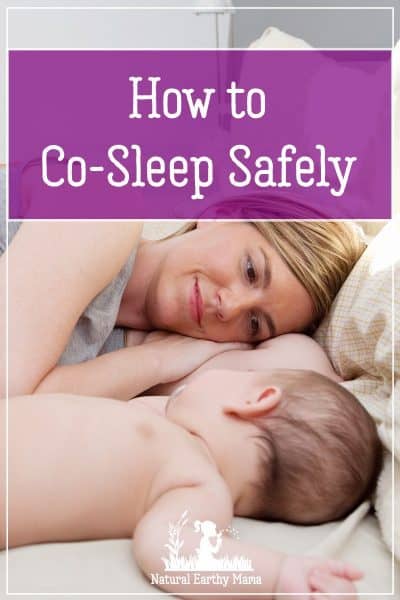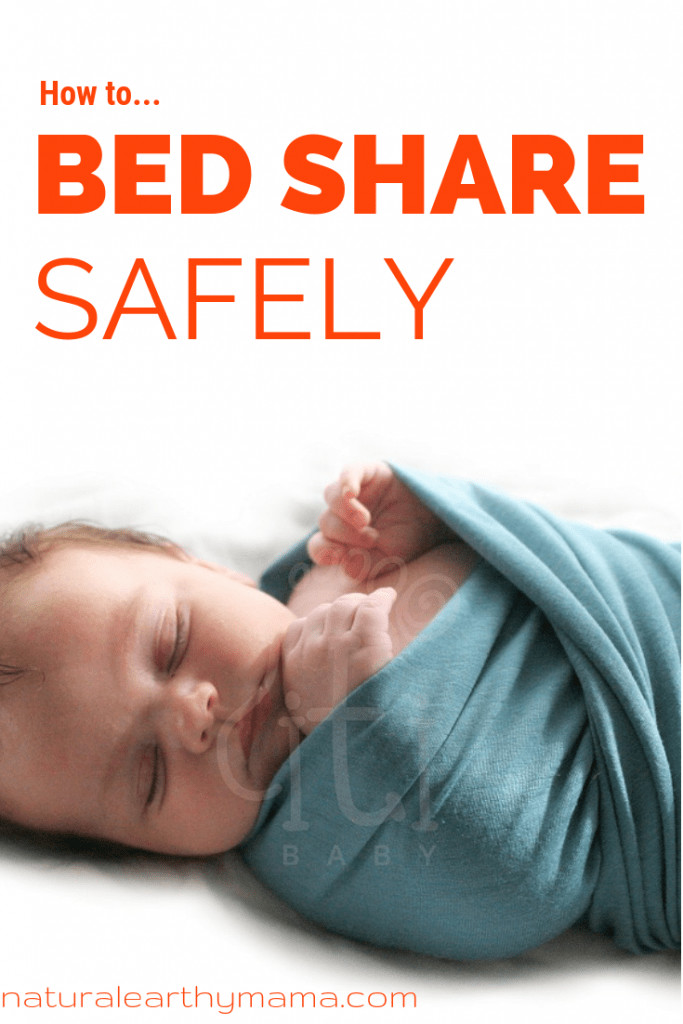 Co-sleeping with your baby has been largely frowned upon and discouraged in the last few decades. This has been based on some studies that have since been shown to have been too broad in their definition of co-sleeping or bed sharing to be relevant or helpful anymore. They included any form of co-sleeping and bed-sharing, including on furniture, thick and heavy bedding and so on.
Co-sleeping with your baby has been largely frowned upon and discouraged in the last few decades. This has been based on some studies that have since been shown to have been too broad in their definition of co-sleeping or bed sharing to be relevant or helpful anymore. They included any form of co-sleeping and bed-sharing, including on furniture, thick and heavy bedding and so on.
The fact is, all across the world, across all social demographics and all ethnic groups, most mothers sleep with their infants at least some of the time, despite all advice to the contrary. This is particularly true for breastfeeding mothers. The trick is learning to do it safely to protect our precious babies.
Please read: This information is provided for educational purposes only and is not intended to treat, diagnose or prevent any disease. We encourage you to make your own health care decisions in partnership with a qualified health care professional.
This post contains affiliate links, this means at no extra cost to you, we make a commission from sales. Please read
our Disclosure Statement
The trouble with being told not to bedshare
The problem arises when mothers are told not to bed share, so to avoid it, they get up out of bed to breastfeed in an attempt to stay awake. Inevitably you will fall asleep, be it nodding off sitting in a lazy-boy chair and nearly dropping baby, or just laying down to rest a while on the couch… zzzzzzz
Both of these positions are actually far more dangerous than bringing baby into bed with you!
RELATED POST: Encouragement for the mama whose baby won’t sleep
According to a 2010 study of nearly 5,000 US mothers, “in a possible attempt to avoid bed sharing, 55% of mothers feed their babies at night on chairs, recliners or sofas. Forty–four percent (25% of the sample) admit that they [are] falling asleep with their babies in these locations.”
So how do we bed share safely?
1. Breastfeed.
It has been shown that breastfeeding is a protective measure against Sudden Unexplained Death of an Infant (SUDI – also known as SIDS). Let baby feed on demand during the night, it has many benefits other than helping to prevent SUDI:
- Helps maintain a good supply
- Keeps baby settled
- Provides baby with antibodies and nutrition
- Reduces your risk of breast cancer
- Helps mom to return to her pre-pregnancy weight
- Helps to naturally space the next kids by delaying the return of moms monthly cycle
- Is a lovely bonding time.
I of all people know that breastfeeding doesn’t work for everyone – but if you can, know that you are reducing the risk of SUDI/SIDS, and if you can’t breastfeed, just be even more vigilant to follow the other steps to keep baby safe.
2. Keep baby away from your pillows and soft bedding.
Keep baby’s head down near your breast height – this keeps them well away from pillows that may suffocate.
Keep your room at a comfortable temperature to ensure you can sleep with your blankets low enough that they aren’t up near baby’s head.
Use a firm mattress and sleep him on his back. If you are worried baby isn’t warm enough, a sleep sack is a good idea, they still move, but can’t kick their blankets off or over their face.
3. Don’t Swaddle
I am a firm believer in swaddling a new born for the first 12 weeks (and longer) until they adjust to life outside the womb. BUT when bed sharing it is very important that baby can move their arms just in case they need to alert you that you are too close.
You can still wrap them but make sure that their arms are out and free.
RELATED POST: How to choose the best swaddle
4. Avoid smoking, alcohol, drugs and exhaustion
Smoking during pregnancy is known as one of the biggest risk factors in preventing SUDI/SIDS. Smoking after the baby is born is also not recommended if you plan to co-sleep in the same bed.
Alcohol, drugs and exhaustion make you sleep much deeper/heavier and less likely to respond to a baby’s movements if you are too close to them. This also goes for anyone else sharing the bed.
5. Only Co-sleep with caring, aware caregivers.
Bed sharing with multiple children, or baby with sibling is not recommended, they will not be in tune to baby the same way the parents will be, leaving baby at greater risk.
RELATED POST: Ultimate guide to newborn sleep
6. Only Co-sleep in bed.
The second greatest risk factor for SUDI is WHERE you sleep – in bed only (the floor is probably the only place safer than in a bed). You must have a firm mattress, away from any walls. Avoid couches, futons and armchairs.
Bed Sharing can be a beautiful, very natural thing to do. Babies with their mothers are better at regulating heat, breathing and heart rates.
Did you know that more infant deaths occur in unsafe cribs than in parents’ bed and that co-sleeping tragedies that have occurred have nearly always been associated with dangerous practices, such as unsafe beds, or parents under the influence of substances that dampen their awareness of baby.





